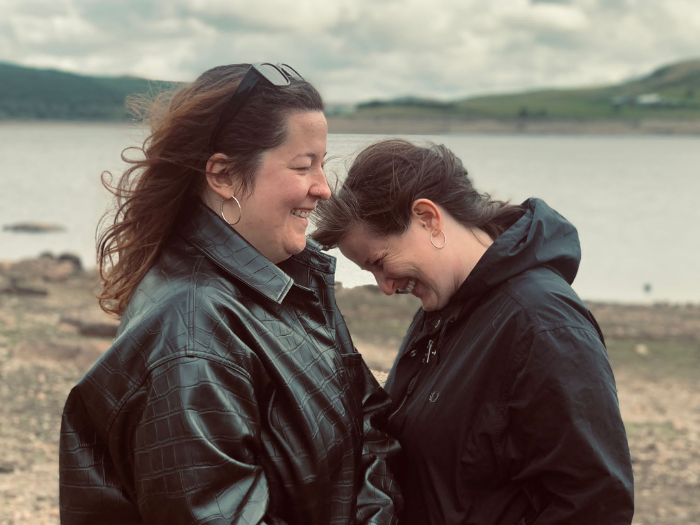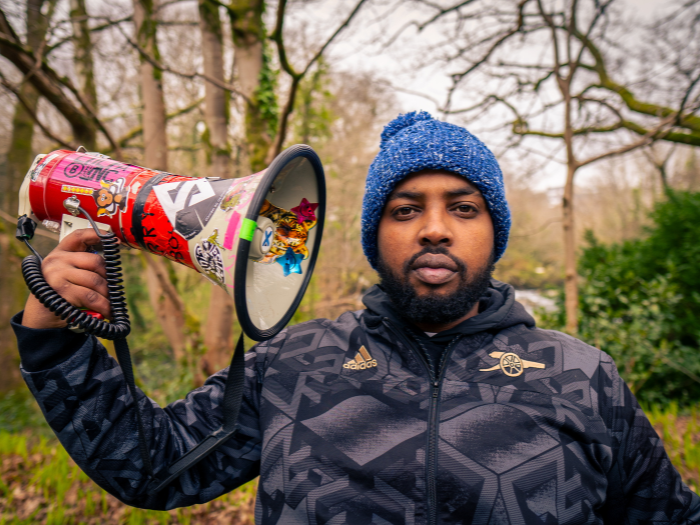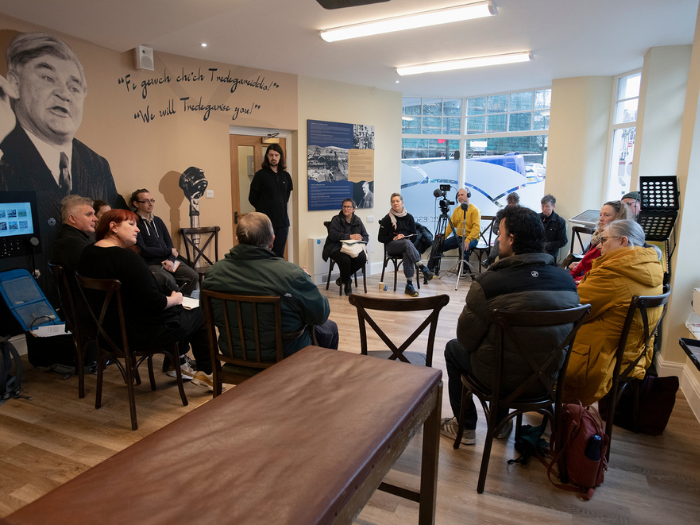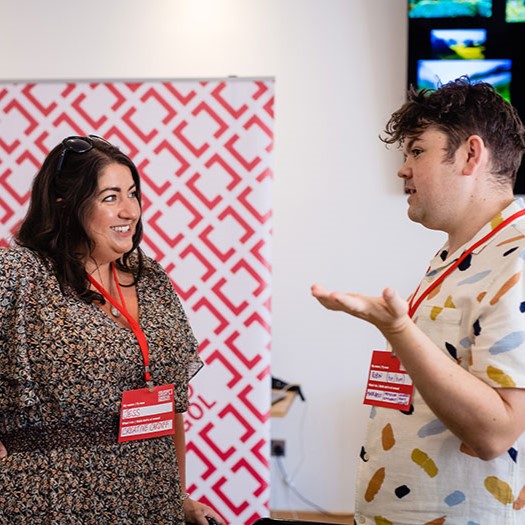We No Longer Talk is a project funded by Arts Council of Wales’ Llais y Lle fund and supported by Common Wealth.

"I’ve worked in the arts for over 15 years. My interest is in class representation and how the arts can be more accessible, led and created with working class people,” explains Rhiannon. “I wanted us to explore what it might mean for a non-Welsh speaker like me to collaborate with a Welsh speaker like Ffion.”
Both artists are from council estates (Rhiannon from St Mellons in Cardiff and Ffion from Bethesda in Gwynedd). But because of geography, politics and the demographics of their two estates, Rhiannon and Ffion had totally different experiences of learning Welsh. Almost all of their other experiences echo each other, but their access to the Welsh language - or lack of it - came down to being in the right place at birth.
“In Cardiff, I grew up not feeling particularly proud of where I came from, for a long time it carried a sense of shame,” explains Rhiannon. "I was from a demonised council estate, known only for its bad traits. The school I attended wasn’t very good, and didn’t have the resources or the capacity to teach us well. I didn’t take Welsh lessons seriously, and often the teacher or I was absent. If I’d known then that learning Welsh could benefit me throughout my life I would have fought for it. If I was taught the history of Welsh culture, the power of the campaigns and activism behind the language, I would have fought for it."
“In places in South Wales, like where I grew up there’s often a class characteristic to Welsh speaking, perceived as being middle class, more white and less multi-racial. There is a risk that this becomes one of the barriers to accessing the language. We wanted this project to challenge this, and be part of reshaping language in a way that is resourceful and sustainable for communities going forward. Seeing Welsh language as a resource in terms of identity, sense of belonging, sense of history – rather being ‘othered’ by it.”
The project has four phases. In the first, early in 2023 Rhiannon and Ffion conducted interviews with a broad range of people in East Cardiff and Bethesda about their experiences of Welsh language, identity and class.
“In Cardiff, there was a real hunger from those who couldn’t speak Welsh to learn it, and a real sense of shame for not being aware of the activism and the reasons behind it,” remembers Ffion. “The other thing we noticed was that people are really inventive with language, incorporating Welsh words into Arabic words for example, using it in their day-to-day lives and creating their own version of it. That has a real sense of humour and ownership to it.
Rhiannon was profoundly moved by the interviews in Bethesda. “It was deep and very emotional in north Wales,” she says. “I felt like ‘oh this is it, this is the real Wales’. I feel uncomfortable even saying that - but the landscape, the language, the beauty of it all really moved me.”

Then, in Autumn 2023, four free workshops were delivered by some of Rhiannion and Ffion’s favourite artists, exploring themes from the research.
The first was held in September, in several locations in Merthyr. It was led by visual artist Jon Pountney who collaborated with historian Chris Parry to create a workshop exploring Welsh identity, landscape and our relationship to Wales’ radical, post-industrial past.
The second workshop in November took place in Tredegar; a writing workshop led by playwright and poet Patrick Jones that soaked up the atmosphere of rebellion, debate and poetry in the town.
The third was led by artist Bedwyr Williams, and held in St Mellons in November.
“We looked at our individual relationship with the Welsh language and Welshness, and then looked at things that pissed us off about the world,” says Rhiannon. “Having someone come down from north Wales and explain his experiences was amazing. It showed me how much we lack swear words in the south!”
The final workshop, in Butetown, Cardiff, was lead by writer and facilitator Taylor Edmonds and activist Sarah Bowen. “We looked at the erasure of working class stories in Cardiff, and the context of policing; the narrative that often doesn’t go in the community’s favour,” explains Rhiannon. “If something bad happens in Cardiff Bay, the media say it happened in Butetown. So it’s really important to look at how we tell our working class stories.”

The third phase – the Collaboration stage of their project – was held in Bethesda bringing together artists and participants from the south to the north. Working with artists like Rhys Trimble, Bedwyr Williams, Thaer Al-Shayei, Ali Goolyad, Gavin Porter and Gwen Sion the participants explored our right to language, assumptions and stereotypes and how language impacts our lives. They experimented with staging a declaration for language in a public space; a park, a tennis court, overlooking the mountains, even in a subway between houses. in Welsh and in English.
Explaining the fourth and final phase, which will be confirmed in the coming months, Rhiannon said:
Our aim is to create something that tells these stories, that can be performed in a public place and that borrows from Welsh culture (the congregational, the eisteddfodol). It’ll be a universal piece of performance art that could happen in any country that has an indigenous language, made from Wales, with love.
Find out more about Dydyn Ni Ddim yn Siarad Mwy/We No Longer Talk.


